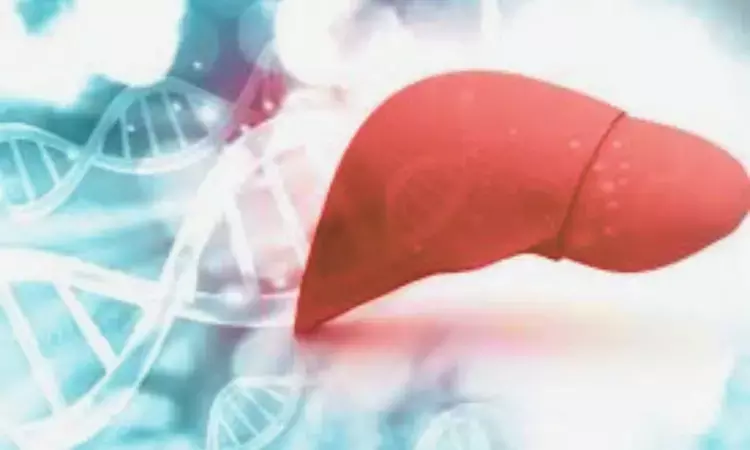- Home
- Medical news & Guidelines
- Anesthesiology
- Cardiology and CTVS
- Critical Care
- Dentistry
- Dermatology
- Diabetes and Endocrinology
- ENT
- Gastroenterology
- Medicine
- Nephrology
- Neurology
- Obstretics-Gynaecology
- Oncology
- Ophthalmology
- Orthopaedics
- Pediatrics-Neonatology
- Psychiatry
- Pulmonology
- Radiology
- Surgery
- Urology
- Laboratory Medicine
- Diet
- Nursing
- Paramedical
- Physiotherapy
- Health news
- Fact Check
- Bone Health Fact Check
- Brain Health Fact Check
- Cancer Related Fact Check
- Child Care Fact Check
- Dental and oral health fact check
- Diabetes and metabolic health fact check
- Diet and Nutrition Fact Check
- Eye and ENT Care Fact Check
- Fitness fact check
- Gut health fact check
- Heart health fact check
- Kidney health fact check
- Medical education fact check
- Men's health fact check
- Respiratory fact check
- Skin and hair care fact check
- Vaccine and Immunization fact check
- Women's health fact check
- AYUSH
- State News
- Andaman and Nicobar Islands
- Andhra Pradesh
- Arunachal Pradesh
- Assam
- Bihar
- Chandigarh
- Chattisgarh
- Dadra and Nagar Haveli
- Daman and Diu
- Delhi
- Goa
- Gujarat
- Haryana
- Himachal Pradesh
- Jammu & Kashmir
- Jharkhand
- Karnataka
- Kerala
- Ladakh
- Lakshadweep
- Madhya Pradesh
- Maharashtra
- Manipur
- Meghalaya
- Mizoram
- Nagaland
- Odisha
- Puducherry
- Punjab
- Rajasthan
- Sikkim
- Tamil Nadu
- Telangana
- Tripura
- Uttar Pradesh
- Uttrakhand
- West Bengal
- Medical Education
- Industry
Abnormal Thyroid Hormone Levels Independently Associated with MASH Risk: Study

Researchers have discovered in a new study that abnormal serum thyroid hormone levels are independently correlated with a higher risk of metabolic steatohepatitis (MASH) in patients with normal thyroid function. The findings suggest a possible role of thyroid hormones as biomarkers for the identification of patients at greater risk of MASH. Metabolic steatohepatitis is a severe liver disease frequently associated with the wider spectrum of non-alcoholic fatty liver disease (NAFLD). The study was conducted by Chun-Yan Yang and fellow researchers published in the journal Digestive and Liver Disease.
MASH is a progressive type of fatty liver disease that may result in liver fibrosis, cirrhosis, and even liver cancer if not treated. Although various metabolic abnormalities such as obesity and insulin resistance are well-documented to contribute, the possible role of thyroid hormone disturbances in those without clinical thyroid disease has gained more interest. Thyroid hormones have a central role in lipid metabolism and liver function regulation. Knowing that their connection to MASH would provide new doors for risk evaluation and early intervention in NAFLD at-risk individuals.
The study retrospectively enrolled 638 patients with NAFLD hospitalized from March 2021 to March 2024. Patients were allocated into two groups according to liver biopsy diagnosis by expert pathologists: 262 patients in the MASH group and 376 patients in the non-MASH group. Clinical information, such as serum concentrations of thyroid-stimulating hormone (TSH), free triiodothyronine (FT3), and free thyroxine (FT4), were obtained. Multivariate logistic regression analysis was conducted to determine independent correlations between thyroid hormone concentrations and the occurrence of MASH. Receiver operating characteristic (ROC) curves were also employed to evaluate the predictive value of these hormone concentrations for the diagnosis of MASH.
Key Findings
• Number of patients studied: 638
• MASH group: 262 patients
• Non-MASH group: 376 patients
• Serum TSH concentration: Higher in MASH group (AUC 0.944)
• Serum FT3 concentration: Higher in MASH group (AUC 0.973)
• Serum FT4 concentration: Lower in MASH group (AUC 0.753)
• FT3/FT4 ratio: Higher in MASH group (AUC 0.959)
• Independent predictors of MASH: TSH, FT3, FT4
This research concluded that high serum TSH and FT3 levels, increased FT3/FT4 ratio, and low FT4 levels were independently related to a greater risk for metabolic steatohepatitis in euthyroid patients. These findings emphasize the significance of identifying subtle changes in thyroid hormones even in the euthyroid group as the most important point for the development of liver disease.
Reference:
Dr Riya Dave has completed dentistry from Gujarat University in 2022. She is a dentist and accomplished medical and scientific writer known for her commitment to bridging the gap between clinical expertise and accessible healthcare information. She has been actively involved in writing blogs related to health and wellness.
Dr Kamal Kant Kohli-MBBS, DTCD- a chest specialist with more than 30 years of practice and a flair for writing clinical articles, Dr Kamal Kant Kohli joined Medical Dialogues as a Chief Editor of Medical News. Besides writing articles, as an editor, he proofreads and verifies all the medical content published on Medical Dialogues including those coming from journals, studies,medical conferences,guidelines etc. Email: drkohli@medicaldialogues.in. Contact no. 011-43720751


